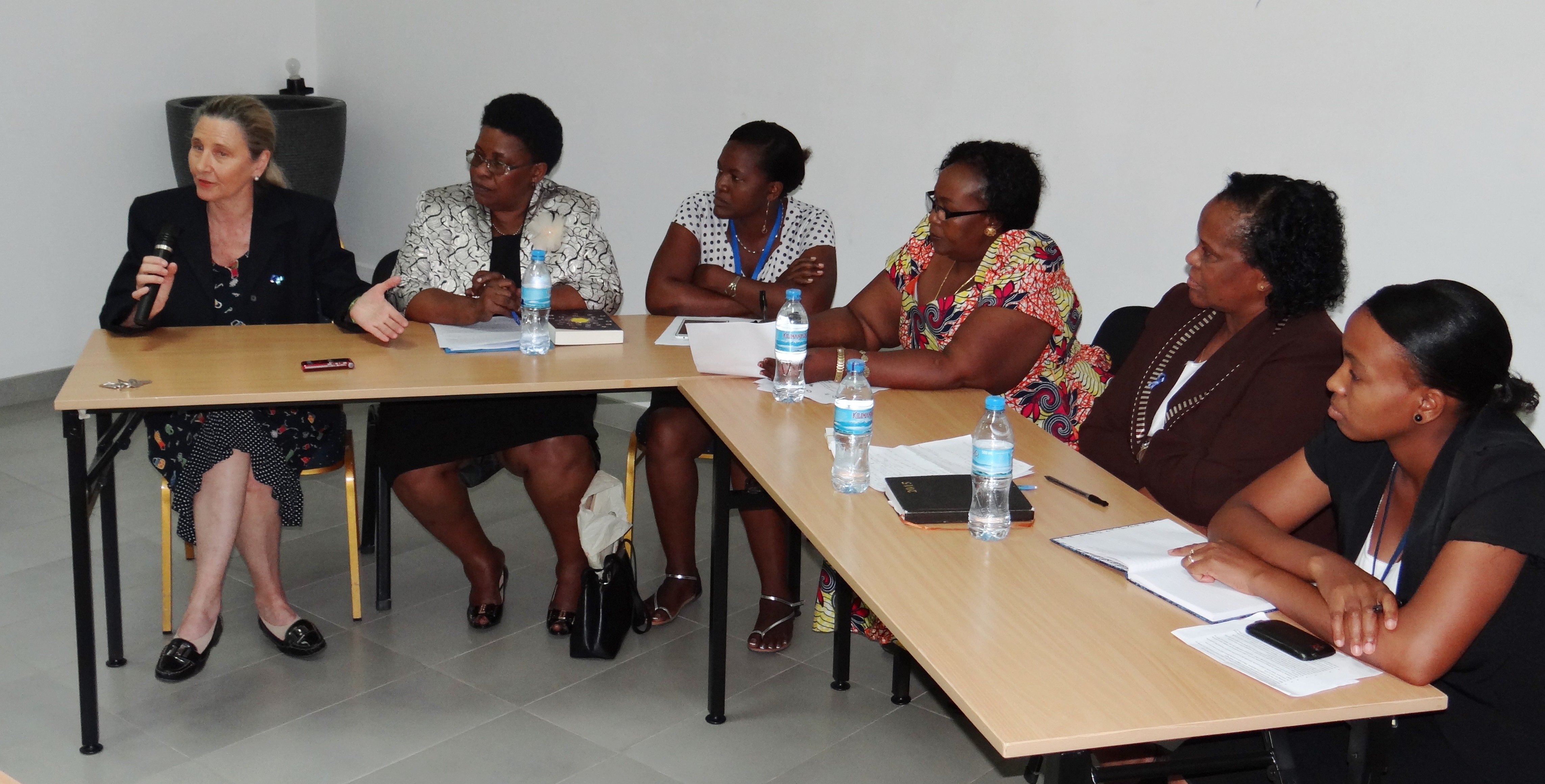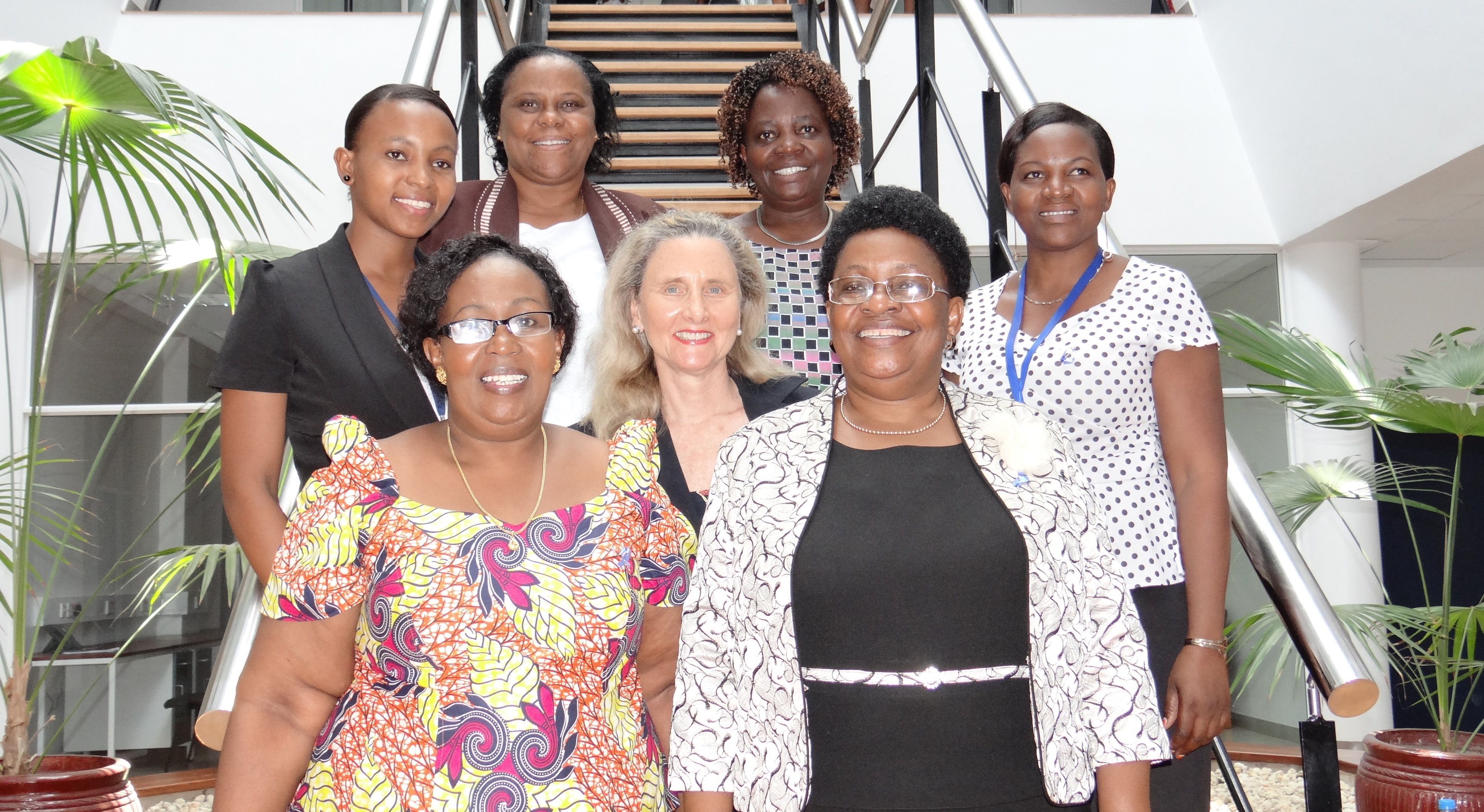“When I went to the US to do my master’s, I was the only black person in my class, the only female, and the only foreigner. And I had two small children. I had a very hard time,” says Dr Mary Mgonja, the Head of the Alliance for a Green Revolution in Africa (AGRA).
Dr Mgonja was sharing her journey on becoming a successful scientist as part of a panel discussion organized to mark this year’s International Women’s Day held at the IITA offices in Dar es Salaam, Tanzania. The event “#Make It Happen for Women in Science” was in line with this year’s theme, “Make It Happen.”
The panel discussion brought together female researchers in Tanzania working in diverse fields and at various levels of their career―those starting out and those at their peak—to discuss and share their stories, successes, and challenges before an audience of IITA researchers and partners, the media, and aspiring young scientists drawn from surrounding secondary schools.
In addition to Dr Mgonja, the other panelists were Dr Costancia Rugumaru, Dean, Faculty of Science at the University of Dar es Salaam, School of Education; Dr Francesca Nelson, Senior Food Security Specialist, IITA; and Mary Maganga and Edda Mushi, Research Supervisors at IITA. The session was facilitated by Dr Rose Shayo, a Senior Lecturer at the Institute of Development Studies (IDS) of the University of Dar es Salaam.
All the panelists shared the various challenges they had faced and the lessons they had learned along the way; they offered words of encouragement to female potential scientists on the
theme that kept repeating itself―hard work.
“In all the places you will work, be yourself, respect your superiors, and do your job well,” said Dr Regina Kapinga who will soon be joining IITA as Head of Advocacy and Resource Mobilization from the Bill & Melinda Gates Foundation. Dr Kapinga also shared her journey from being a simple village girl to working as a Senior Program Officer with the Gates Foundation and all the lessons on the way and the wisdom she had gained.
“One of my biggest challenges was the lack of facilities to study science in my high school. We did not have laboratories and equipment; however, I persevered, did well, and proceeded to the university to pursue my degree in agronomy. At the university, there were very few students, as many women said agronomy was a very hard subject,” Edda Mushi explained.
Dr Franscesca Nelson focused on the importance of tackling existing social conventions which were disadvantageous to women. These included issues such as violence against women and the discrimination that was deeply rooted in cultural beliefs and social norms.

IITA women researchers in Tanzania sharing their life’s journeys and experiences to motivate other potential female scientists.
She also noted that it was important for female researchers to use their knowledge and skills to find solutions to the challenges faced by poor rural women; for example, by developing labor-saving equipment and tackling inequalities.
While officially opening the event, Dr Victor Manyong, IITA Director for Eastern Africa, briefed participants on gender issues at the Institute. He said gender is a very important topic at IITA as an international research organization whose goal was to tackle hunger, poverty, and malnutrition in sub-Saharan Africa.
“We cannot address these problems in Africa without understanding and addressing the constraints faced by women farmers. In most communities they provide the majority of labor on the family farm and process food for markets as well as for family consumption.
In some communities, they are not allowed to own land or other agricultural assets and they have no say in any decisions on farm incomes and activities,” he said.
Dr Manyong added, “It is therefore important to factor these considerations in our research-for-development interventions to ensure they benefit all Africans, women and men alike.”
The students at the event appreciated the opportunity to meet and hear from successful researchers, saying they were very inspired by all the stories.
“We are very happy to meet all these senior scientists who have motivated us and shown us that science can be for girls. We do not have many such opportunities. I wish there would be more of such forums that reach out to more girls including those in the rural areas,” said Glory Venance, a form 5 student at Jangwani Secondary School. “However, in our school, we also do not have good facilities and equipment. Therefore, even as we are being motivated to take up science, the Government should also look into this challenge.”
The participants urged IITA and its partner institutions to find ways to organize other such forums to motivate girls to take up science and encourage the young scientists starting their careers. The event was organized by IITA in collaboration with AGRA and IDS of the University of Dar es Salaam.




No Comments